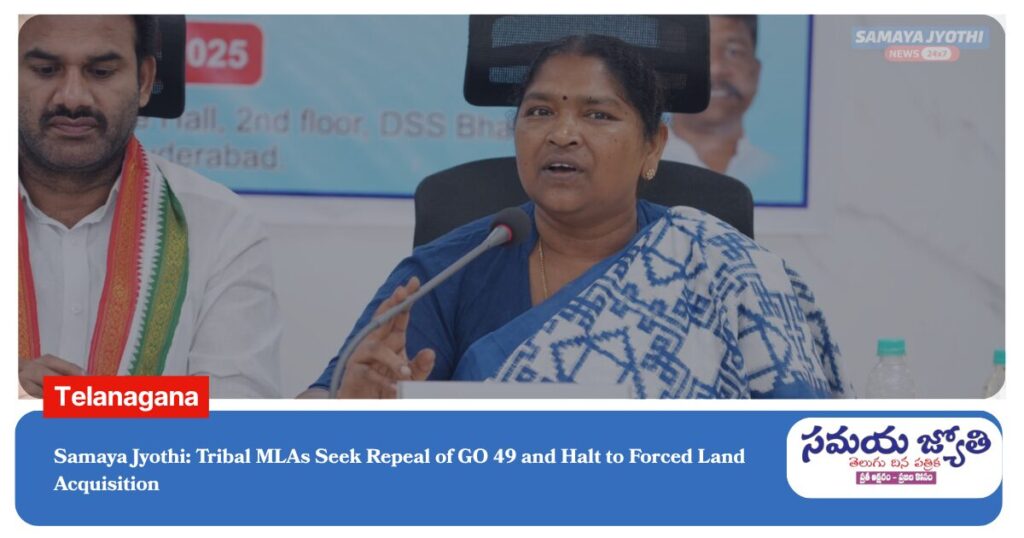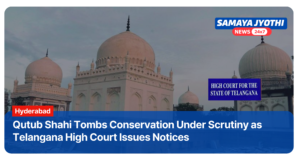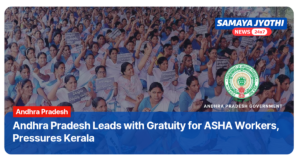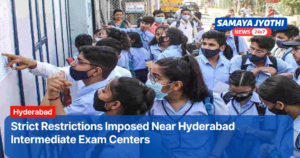- Home
- Blog
- Tribal MLAs Demand Justice: Revoke GO 49 & Protect Forest Rights
Samaya Jyothi: Tribal MLAs Seek Repeal of GO 49 and Halt to Forced Land Acquisition
Samaya Jyothi: Tribal MLAs Seek Repeal of GO 49 and Halt to Forced Land Acquisition
In a significant political development, Tribal MLAs held a crucial meeting to raise urgent concerns affecting their communities. These representatives strongly opposed Government Order (GO) 49 and the establishment of the Komaram Bheem Conservation Reserve, asserting that such decisions are being made without adequate consultation or consent from local tribal populations.
The meeting, which witnessed participation from several tribal leaders and public representatives, focused on safeguarding tribal land rights and protecting the autonomy of local governance. The MLAs voiced strong objections to the ongoing trend of land acquisition by the government and private entities without securing approval from the Gram Sabhas, a mandatory provision under the Forest Rights Act (FRA).
Key Objections Raised
The tribal MLAs highlighted that GO 49 directly undermines the traditional rights of indigenous communities by allowing land transfers without local consent. They emphasized that the government must respect constitutional safeguards and the Panchayats (Extension to Scheduled Areas) Act (PESA), which mandates community approval before any developmental or conservation-related decisions are made.
The proposed Komaram Bheem Conservation Reserve also came under scrutiny. While the conservation intent is not being questioned, the MLAs argued that designating vast areas of forest land as protected without considering the implications for local livelihoods is unjust. Tribal families residing in these areas fear eviction and loss of access to essential forest resources.
Demand for Immediate Revocation
During the session, the MLAs demanded an immediate revocation of GO 49. They also urged that any proposal involving the declaration of conservation zones or wildlife reserves must be paused until tribal voices are adequately represented in the decision-making process.
One of the MLAs stated, “We are not against development or conservation, but it cannot come at the cost of our people. Without Gram Sabha approval, any land acquisition is illegal and unconstitutional.”
Assurance of Escalation to the State Leadership
The group assured that these concerns would be taken directly to the attention of the Hon’ble Chief Minister and Deputy Chief Minister. They stressed the importance of dialogue and democratic decision-making in resolving these conflicts.
“The lives and futures of thousands of tribal families are at stake. We are committed to ensuring that their voices are heard and respected at the highest levels of the state government,” another MLA added.
Wider Community Impact
Activists and local residents have lauded the stand taken by the tribal MLAs. Community leaders from affected districts expressed solidarity and hope that the government will respond with sensitivity and urgency.
Experts in tribal rights have also weighed in, stating that any breach of the FRA and PESA guidelines not only erodes constitutional rights but also paves the way for social unrest. “Ignoring these legal frameworks can have long-term consequences, not just for the tribal population but for the entire state’s governance credibility,” said a senior legal analyst.
As the momentum builds, all eyes are now on the state leadership. Whether the government will heed the calls of its own elected representatives remains to be seen. What is clear, however, is that tribal voices are growing stronger, more united, and unwilling to be sidelined.
This meeting marks a turning point in the fight for tribal rights in the state. It serves as a powerful reminder that inclusive governance is not just a constitutional necessity—it is a moral obligation.
As the momentum builds, all eyes are now on the state leadership. Whether the government will heed the calls of its own elected representatives remains to be seen. What is clear, however, is that tribal voices are growing stronger, more united, and unwilling to be sidelined.
This meeting marks a turning point in the fight for tribal rights in the state. It serves as a powerful reminder that inclusive governance is not just a constitutional necessity—it is a moral obligation.
Click for more latest news. Also get top headlines and latest news from India and around the world at samaya jyothi










